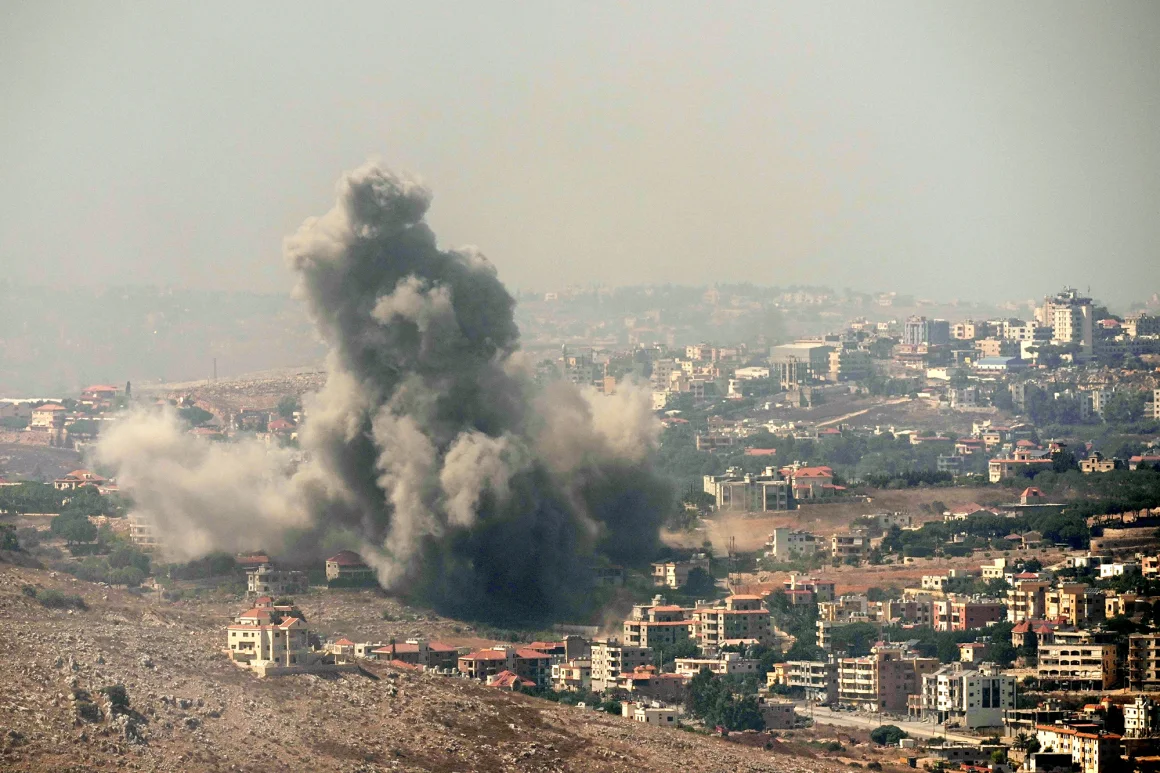Hezbollah has once again demonstrated its strategic caution in the face of Israeli attacks. Despite pledging a “battle without limits,” the group’s latest actions suggest a careful balancing act. The recent missile strike intercepted near Tel Aviv, while unprecedented, was also understated, signaling both the potential for further escalation and a possible desire to avoid all-out war.
A Calculated Strike: More Than Just a Missile
On Wednesday, Hezbollah launched what it claimed was a ballistic missile targeting Tel Aviv—a first for the militant group. It marked the first time a missile from Lebanon had reached near Tel Aviv and the first time Hezbollah leader Hassan Nasrallah followed through on a promise to retaliate for Israeli strikes on Beirut. However, with Israel’s advanced air defense systems, it was no surprise that the missile was intercepted.
One missile begs the question: why only one? Given the significant risk of a wider war involving the U.S. and Iran, the single shot could be seen as a message. Hezbollah seems to be saying, “We have powerful weapons and friends—don’t push us further.” The group’s restraint suggests that while it has an arsenal of medium and long-range missiles, Wednesday’s strike was more about sending a signal than igniting full-scale war.
Escalating Tensions Without Full-Scale War
Hezbollah’s recent actions reflect a managed escalation, as they seek to retaliate against Israel’s intensified campaign aimed at halting cross-border strikes. Hezbollah initially entered the conflict in solidarity with Palestinians in Gaza after Hamas’ attacks on Israel in early October. While it has avoided direct large-scale warfare, daily exchanges of fire have forced over 60,000 Israelis to flee their homes in the north, with over 100,000 Lebanese residents also displaced due to Israeli retaliatory strikes.
The situation deteriorated further after a deadly rocket attack in the Israeli-occupied Golan Heights killed 12 Druze children. Israel accused Hezbollah of the attack, but the group “firmly” denied involvement. Yet, for Israeli officials, the situation had already become intolerable, leading Prime Minister Benjamin Netanyahu to shift focus from Hamas in Gaza to Hezbollah in Lebanon.
Retaliation and Response: Lebanon Feels the Impact
Israel’s response has been brutal. Over the past year, Israel’s dual objectives were the destruction of Hamas and the return of hostages taken by the group. On September 16, a new goal emerged: securing the safe return of Israeli residents near the Lebanon border. In the days that followed, Hezbollah suffered devastating blows. Explosions from Hezbollah militants’ pagers and walkie-talkies killed dozens and injured thousands. Though Israel did not officially claim responsibility, it’s widely believed the attacks were orchestrated by Israeli intelligence services.
Despite suffering heavy losses, Hezbollah is not backing down. Its missile strike this week, framed as an act of solidarity with Palestinians and in “defense of Lebanon and its people,” represents a shift towards defending its own territory. As the conflict deepens, both sides seem unwilling to de-escalate.
Growing Despair in Lebanon
Amid the rising conflict, Lebanon is facing a humanitarian crisis. Foreign embassies have urged their citizens to leave, and the country’s Foreign Minister, Abdallah Bou Habib, reported that Israel’s attacks have displaced nearly half a million people. Beirut’s streets are emptying as the military conflict exacerbates the already fragile state of Lebanon. For many, the fact that Hezbollah and Israeli authorities haven’t officially declared war is little comfort amidst the destruction and displacement.
A Fragile Future
With neither Israel nor Hezbollah showing signs of backing down, the region stands on the brink of further escalation. As international pressure mounts to defuse the situation, the people of Lebanon are left in a state of uncertainty, bracing for what may come next. Only time will tell if either side will step back from the edge.







